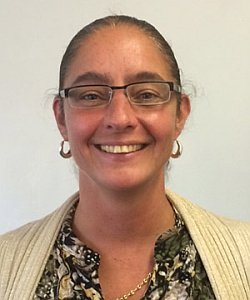
Featured Session - International Conference 2016
Communicative Instructional Approaches: A Framework for 21st Century Skills
What skills do we need to address when teaching 21st century skills? One way to look at the issue is to consider that 21st century skills are not necessarily uniform across contexts. Even among countries where a common language is adopted, each nation and context requires specific linguistic, interpersonal, and sociocultural skills to effectively participate in that community. Teachers need to go beyond language as a focus of instruction, even at lower levels, and incorporate activities that target specific linguistic, interpersonal, and sociocultural skills for the expected needs of students. There are a variety of communicative approaches to offer meaningful interaction in the classroom while focusing on skills for target country- and context- specific interactions – all fostering meaningful, collaborative interaction that also permits a focus on building interpersonal and sociocultural skills for distinct contexts. The session explores how a variety of communicative instructional approaches can be used as a framework to build 21st century skills for a specific context, or several, depending on students’ needs.
_______________
Invited Second Session
Making Gwaoe and Hagwon Lessons More Collaborative
Learning English one-on-one seems ideal, yet the learning context can become stale over time as the interaction is limited to teacher-student communication. Even the smaller classes of hagwons often present little time for communicative activities, the focus often being on test preparation. The presenter shares how to make individual tutoring and hagwon classes more communicative and meaningfully interactive by linking similar age and ability students together through the use of group websites and/or wikis. The use of online tools opens up meaningful opportunities for learners to interact with peers to complete task-based activities, promoting learners' communicative skills, and fostering their autonomy, as well as social and interactive skills in the online environment. In doing so, students develop interpersonal and sociocultural skills for the 21st century.
_______________
Biographical Sketch
Kara Mac Donald is an associate professor and faculty development trainer at the Defense Language Institute, USA. Her background consists of over twenty years in foreign language teaching, teacher training, curriculum design, and faculty development across elementary, secondary, and higher education. She earned a master’s in applied linguistics (TESOL) and a doctorate in applied linguistics. As a faculty development trainer, she conducts pre-service and in-service training via face-to-face and hybrid courses. She maintains a close connection to the language classroom as a part-time English instructor for children and young adults in ESL and academic preparation courses.
_______________
Resources on the Web: Kara Mac Donald
Article: Differentiated Activities for the Language Classroom Using Mobile Apps (FLTMAG)
http://fltmag.com/differentiated-activities-using-mobile-apps/
Article: Diagnostic Teaching: Classroom Assessment Tools to Supplement Existing Formative Assessment (Dialog on Language Instruction, 2015, pp. 64-66)
http://www.dliflc.edu/wp-content/uploads/2015/10/Dialog-on-Language-Inst...
Video: Ahmar Mahboob speaks with Kara MacDonald at the KOTESOL 2014
https://www.youtube.com/watch?v=sgnkS4r68gA
See Kara's introductory video for KOTESOL 2016 immediately below.
See the full list of Major Speakers at the KOTESOL International Conference at https://koreatesol.org/ic2016/Major-Speakers


